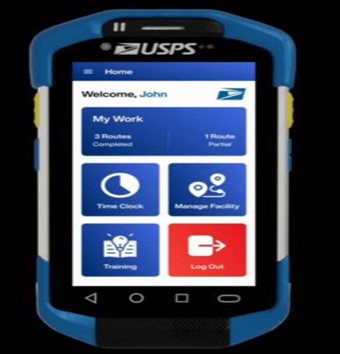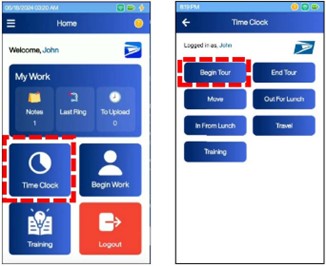Updates to USPS Eagle Clean (e4776) Pilot Program in the Maintenance Craft
October 9, 2024
The Postal Service formally notified the APWU on June 20, 2024, that they believed the Eagle Clean (e4776) pilot program was a success and they would begin implementing Eagle Clean across the country. Maintenance Division leadership has been meeting with the Postal Service to discuss the program and any violations and unintended consequences that might result from its implementation.
As reported during the recent Maintenance Division Conference in Detroit, MI and the previous Conference in National Harbor, MD, the Postal Service notified the APWU of its intent to pilot the Eagle Clean (e4776) program on May 30, 2023. The Postal Service’s reasoning behind the pilot program was to evaluate the efficiency and effectiveness of completing and submitting the PS Form 4776 using a Mobile Delivery Device scanner (MDD). Custodians would utilize the MDD scanner daily to record the time spent working on various custodial tasks. Once completed, the data would be reviewed by the supervisor and uploaded to be stored on the Retail and Delivery Application Recording platform (RADAR). The pilot program officially began on July 1, 2023, in five facilities in Maryland, and expanded shortly thereafter to facilities in Lexington, KY and Tampa, FL
As a brief recap, the APWU and the Postal Service have always had existing Step-4 agreements and national Questions and Answers that required the use of the PS Form 4776. The Postal Service claimed that the e4776 would contain the same information as the hard copy PS Form 4776, and that custodians would complete the e4776 in the same manner as the hard copy – the only thing that would change is that instead of using a pen and paper, custodians would now use a scanner with text input. PS Form 4776, also known as Preventive Custodial Maintenance Route, contains information detailing what, when, where, and how custodians should perform their work in different areas of each facility. Historically, management has failed to use these forms, but it now appears they are attempting to come into compliance, and then some.
 Using the MDD, it appears custodians have several options after logging in, such as: begin tour, in and out to lunch, end tour, move to different operation numbers, move to travel operation, and track training. In addition, custodians can select daily routes (routine tasks) and track the time spent performing those routes. They can also select work orders (periodic tasks) for tasks required to be done on a monthly, quarterly, annually, etc. basis. Lastly, they can select odd-and-end tasks (Ad-Hoc) to track time spent performing work that is not necessarily contained within the custodial staffing package.
Using the MDD, it appears custodians have several options after logging in, such as: begin tour, in and out to lunch, end tour, move to different operation numbers, move to travel operation, and track training. In addition, custodians can select daily routes (routine tasks) and track the time spent performing those routes. They can also select work orders (periodic tasks) for tasks required to be done on a monthly, quarterly, annually, etc. basis. Lastly, they can select odd-and-end tasks (Ad-Hoc) to track time spent performing work that is not necessarily contained within the custodial staffing package.
As always, we must reinforce the importance of the individual employee and the way they complete their paperwork (or, in this case, data). If custodians get pulled away from their daily tasks to perform something unanticipated and never get the opportunity to return and complete the original task, the original task should not be submitted as completed. If custodians find themselves in a situation where local management instructs them to falsify data, they should quickly request a steward.
To be clear, the APWU has not agreed to the Eagle Clean program, and we are still having meetings and discussions on this matter. There are several pieces of the Eagle Clean program that the APWU is concerned about and that we hope to resolve in a timely manner. Local and state unions should advise their custodians to keep a notebook and track all time they spend performing work not contained in the custodial staffing package (this includes time spent performing tasks above and beyond the estimated times and frequencies). Custodians should also be advised to keep track of all the work that, for a variety of reasons, they are unable to complete or even begin.
Contact us with your questions or comments via email at MaintStaffing@apwu.org



